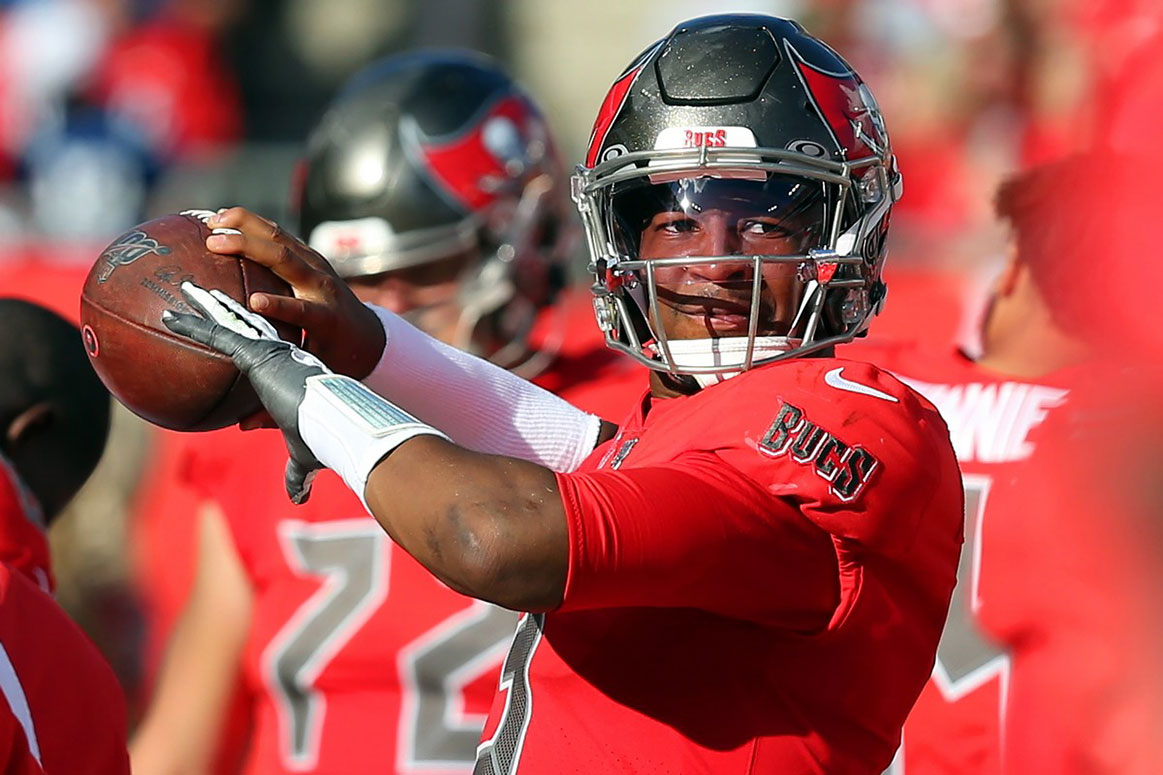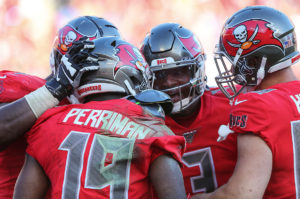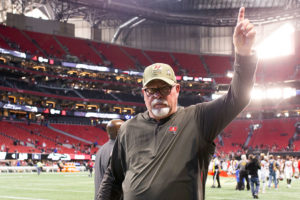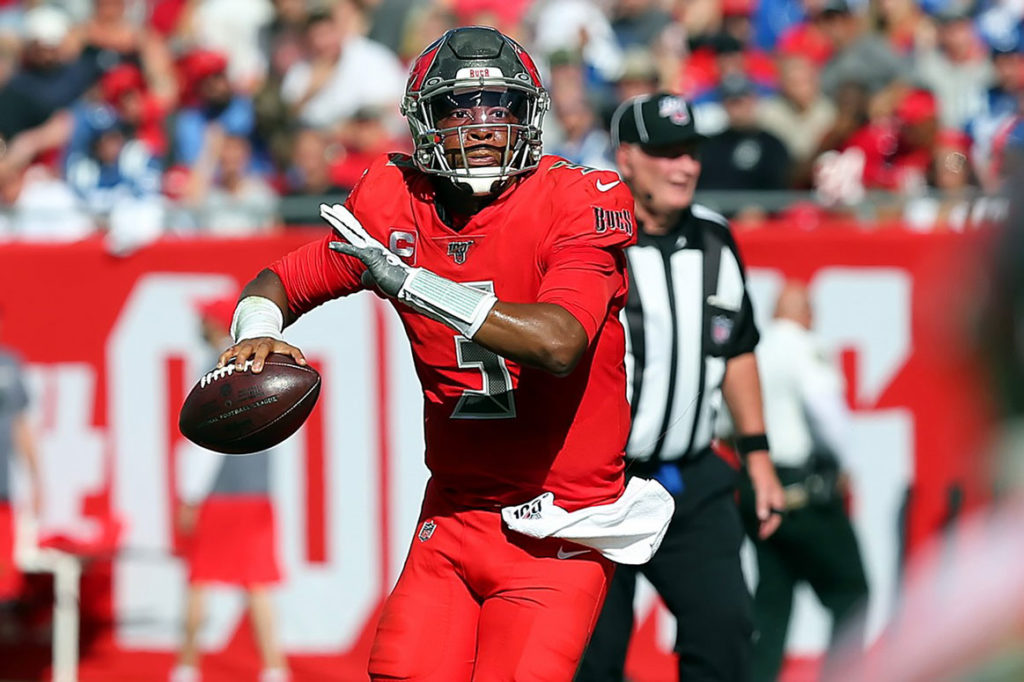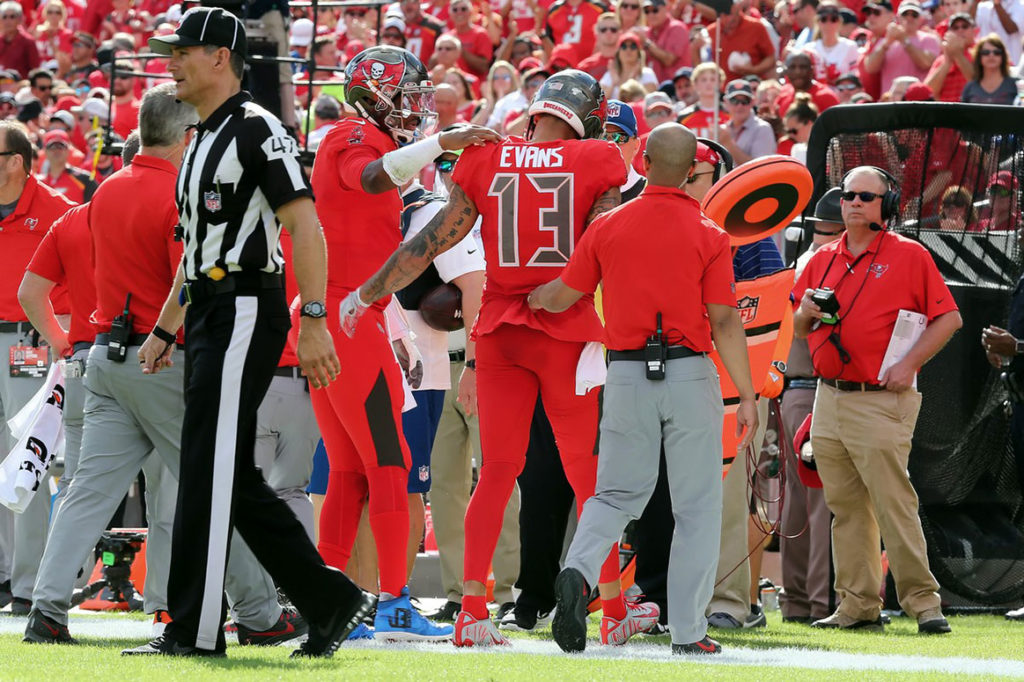Cover 3 is a weekly feature column written by PewterReport.com’s Tampa Bay Bucs beat writer Trevor Sikkema published every Tuesday. The column, as its name suggests, comes in three phases: a statistical observation, an in-depth film breakdown, and a “this or that” segment where the writer asks the reader to chose between two options.
Sikkema’s Story of the Week
The month of December is an exciting time in the NFL calendar, and if we’re being honest, this is where regular season legends are truly remembered. How teams finish down the stretch, whether that’s due to incredible player performances or coaching changes that have finally come together throughout a season, can catapult them into the month of January with good momentum.
Most of the time – or “ideally”, as I should say – you would be talking about the playoffs when referencing momentum. We know that sometimes it’s not always the best, but rather, the hottest teams that hoists the Lombardi Trophy at the end of the year. How teams play in December goes a long way into becoming one of those teams “you just don’t want to run into” once the playoffs start.
But here in Tampa Bay, the momentum gained in December hasn’t correlated to anything done in the playoffs in a long time. This franchise hasn’t made the postseason since 2007, so any type of positive streak down the stretch has simply been used as an offseason morale boost.
The Buccaneers won’t be ending their playoff drought this season, as they were eliminated from playoff contention this past Sunday. Though their 6-7 record is identical to that of the Eagles and Cowboys, teams that have 53 and 47 percent playoff chances, respectively, as well as still control their own destiny, the Bucs got the short end of the stick with the division they’re in and are already mathematically eliminated.
But this team wasn’t eliminated due to a loss. This past Sunday wasn’t a dropped game that sent their hopes and dreams packing. In fact, it was the opposite. After being down 10 points twice and down 14 points once throughout the contest against the Indianapolis Colts, the young, resilient Buccaneers never said die and were able to capture a thrilling 38-35 victory in Raymond James Stadium.
Unfortunately, due to how the math worked out, when the Minnesota Vikings also defeated the Detroit Lions that day, the Bucs no longer had a shot at the postseason. When this happens, as has been the case for many, many years now, the thought process from the fan base is normally something to the tune of “well, since we can’t make the playoffs anymore we might as well lose every game from here on out to get a better draft pick.”
Such a train of thought is logical. The higher you pick in the draft, the better chance you have at getting an impact player. I’m a big draft guy. I’m someone who truly believes you build your franchise through the draft. This is how you acquire the right difference makers to not only obtain success but open your window to win. And that is why I can’t believe what I’m about to say, but it’s something I wholeheartedly agree is the right approach for this team.
Forget the draft. Go win games.
4-12, 6-10, 9-7, 5-11, 5-11. Those are the records the Bucs have finished with over the last few years. Those records have earned them a few Top 10 selections, a lot of Top 100 picks. But you know what else it created? A losing culture.
Whether it’s been close finishes, blow out losses, or last-quarter games where the Bucs find a new way to rip your heart out, this team has had no idea how to win for the better part of a decade. At various times, I thought it was due to the wrong head coach being in charge or the wrong quarterback or the wrong collection of talent. A “culture of losing” isn’t real, right? It’s just a label.
I was wrong. It is real.
In the NFL, not only do you have to learn your position at the highest level, the positions of others you go up against, how to gel with your teammates, and how to carry yourself on and off the field as a pro, you also have to learn how to win – maybe more importantly how not to lose. A lot of these guys come from college football programs where going 9-3 might be seen as a bad year. For some of these big-time players, all they knew in college was high success. They played one, maybe two big games a year. If they came out early, that’s five big games in their college career, and maybe they only even played in a couple. The rest were against inferior teams. For a lot of these guys, they came from winning. Not to say they didn’t work for it back then, but working for wins with your body and your skill and working for them in your mind are different things.
The Bucs have had talent to win over the years, but they’ve never had the mindset to. Now they might, or at least they’re getting there. As winners of four of their last five, the future of this franchise would be better served finding out just how much of a winning mindset they’ve creating as opposed to losing games for a better spot in the draft.
Normally I don’t have this type of thought process. I think negative momentum is more real than positive momentum when it comes to the offseason staring in January. When you lose a bunch of games down the stretch, it can lead to changes at coaching positions, in the front office, at quarterback or throughout the roster. When you reel down the stretch, that negative momentum can create those kinds of impactful moves (in bad ways). On the flip side, I tend to think that, when it doesn’t amount to playing extra postseason games immediately following the regular season, a win streak or hot month of December doesn’t exactly mean anything for football games that will be played seven months later.
But for this team it’s not just about looking at these final three games in a vacuum with a bottom line. It’s about instilling confidence and culture into these young players.
“When we finished that season [in Arizona] beating Seattle, who were division champs, it led into a hell of an offseason,” Arians said. “For us to possibly win four in a row, then five in a row against a real good Houston team, and then it’s going to be a struggle in Detroit this week with the number of injuries we’ve got, but that’s building blocks. The culture is set because the other guys aren’t accepting it anymore. They don’t accept losing anymore. That’s kind of what the guys stood up and said in the locker room. I didn’t have to say much. We ain’t accepting this [stuff] anymore. You know it’s getting across.”
In 1996, under head coach Tony Dungy in his first year with the team, the Bucs started the season 1-8. They went on to finish out the year 5-2 in their last seven games. That next season they broke a 14-year playoff drought with a 10-6 record, starting the season 5-0. That gave way to the Buccaneers turning a page, making the playoffs five of the next six seasons, and in the final one they found themselves at the top of the mountain as world champions.
For the longest time, back then and even now, losing and Tampa Bay went hand-in-hand. At 6-7, one game below .500, I suppose I have to say it still does. If you play in new England, you expect to win. If you play in Pittsburgh, you expect to win. If you play in New Orleans, you expect to win. That expectation hasn’t been present in Tampa Bay for a long time.
At the beginning of the season I wrote that 2019, whatever the final record was going to be, had to be about a changing of the tides. This team still has to prove they can beat the good teams, but at this point winning is winning. I’m not saying winning these last three games will guarantee a Super Bowl down the road like it did with Dungy and then Gruden. But in order to really change tide you need waves — you need wins.
So when it comes to these last three games, especially knowing that even losing out won’t get them a high Top 10 selection, you can keep the strategy of a best potential draft pick.
Win as many games as you can, shed the losing culture, and remember that feeling and what it took to achieve it going into what is hopefully a window to success starting in 2020.
Trevor Sikkema is the Tampa Bay Buccaneers beat reporter and NFL Draft analyst for PewterReport.com. Sikkema, an alumnus of the University of Florida, has covered both college and professional football for much of his career. As a native of the Sunshine State, when he's not buried in social media, Sikkema can be found out and active, attempting to be the best athlete he never was. Sikkema can be reached at: [email protected]

